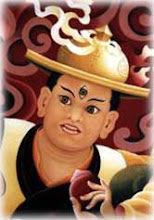There is another book out about the previous Dalai Lamas, called
Secret Lives of the Dalai Lama: The Untold Story of the Holy Men Who Shaped Tibet, from Pre-history to the Present Day
Part of its write up says:
His Holiness the Fourteenth Dalai Lama is known to the world for his efforts to preserve Tibetan culture and for his inspiring spiritual teachings. Often unnoticed, however, is the long, colorful history from which this most beloved of holy men has emerged. In Secret Lives of the Dalai Lama, Alexander Norman tells this story in full for the first time, from Tibetan Buddhism’s foundational narratives to the present-day crisis faced by Tibet.
And what a story it is. Along with dedicated monks selflessly serving the Tibetan people, among His Holiness’s spiritual forebears there are a Dalai Lama who waged wars, a womanizing and inebriated poet, and several who wound up dead following disputes over temporal power. Also, while Western practitioners focus on Tibetan Buddhism’s liberating vision of enlightenment, it simultaneously contains ritual practices of prophecy and magic, as well as a vivid pantheon of deities and demons.
"Holy men"??! Upon reading the history of the previous Dalai Lamas, the only "holy men" amongst them would appear to be the first four and the Seventh, none of whom had political power or abused their position as spiritual teachers.
It is a stretch to call the rest "holy men". That is unless you call womanizing drunks (the Sixth), violent power-hungry people (the "Great Fifth" and the "Great Thirteenth") and political dictators (the current Fourteenth) "holy men". The Eighth handed over his political power to regents, and the Ninth, Tenth and Twelfth died too young for anyone to make their mind up about them.
During a rebellion of the Karmapas in Tsang, the Fifth Dalai Lama (the 14th Dalai Lama's favorite "spiritual forbear") issued orders:
[Of those in] the band of enemies, who have despoiled the duties entrusted to them:
Make the male lines like trees that have had their roots cut;
Make the female lines like brooks that have dried up in winter;
Make the children and grandchildren like eggs smashed against cliffs;
Make the servants and followers like heaps of grass consumed by fire;
Make their dominion like a lamp whose oil has been exhausted;
In short, annihilate any traces of them, even their names.
 The "Great Thirteenth" (1876-1933) (the current Dalai Lama's other favorite "spiritual forbear") was also a cruel leader. As chief judge he commanded severe punishments to be meted out to trouble-makers, including floggings, amputations and exile. His friend Sir Charles Bell gave the damning verdict:
The "Great Thirteenth" (1876-1933) (the current Dalai Lama's other favorite "spiritual forbear") was also a cruel leader. As chief judge he commanded severe punishments to be meted out to trouble-makers, including floggings, amputations and exile. His friend Sir Charles Bell gave the damning verdict:Doesn't sound very holy to me. Nor does the current Dalai Lama's current ban of a beloved spiritual practice and the threatening language he uses to back it up, such as (to monks in India who questioned the ban on practicing Dorje Shugden):
As for the 14th Dalai Lama's "inspiring spiritual teachings", they come from the kindness of his precious Spiritual Guides. Yet he superseded and denigrated all of them as he assumed more and more temporal power.
14th Dalai Lama inspecting
troops at Chakrata in 1972"There will be no change in my stand. I will never revoke the ban. You are right. It will be like the Cultural Revolution. If those who do not accept the ban do not listen to my words, the situation will grow worse for them. You sit and watch. It will grow only worse for them."
Sometimes cliches hit the mark: Power corrupts. Absolute power corrupts absolutely.
This all sounds incredible. It is true though. To find out more, including all the sources for this information, read A Great Deception.
Here is a very good article on why we feel it is okay to criticize the Dalai Lama.








